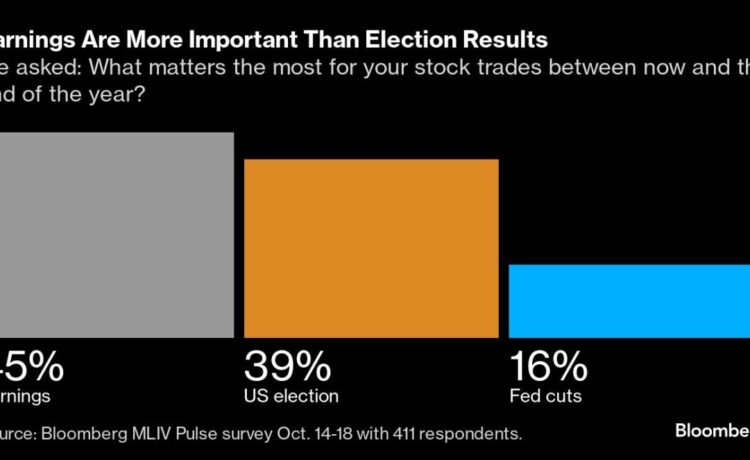(Bloomberg) — Asian equities declined for a second day as Wall Street stocks took a breather after notching their longest weekly rally this year. Bonds tumbled on cooling expectations of Federal Reserve rate cuts.
Most Read from Bloomberg
The MSCI AC Asia Pacific Index fell as much as 1.1% as benchmarks in Australia and Japan declined while Chinese markets edged higher. That’s after equities in the US dropped from nearly overbought levels, following a relentless advance to all-time highs.
Treasuries’ 10-year yields jumped 11 basis points to 4.20% on Monday, after Federal Reserve Bank of Kansas City President Jeffrey Schmid said he favors a slower pace of interest-rate reductions given uncertainty about how low the US central bank should ultimately cut rates. Australian and New Zealand bonds fell in morning trading.
A multitude of factors are driving the bond selloff, including concerns over supply and better US economic data, Chris Weston, head of research at Pepperstone Group Ltd., wrote in a note. US election bets are also weighing on the market, with traders “front-running the risk of a ‘Red Sweep,’” he said, referring to the possibility of Republicans taking the White House and Congress.
“The trend higher is growing legs,” he said.
A presidential win for Donald Trump will stoke concerns of higher inflation given his campaign promises, which may push back rate cuts.
Focus remains on Beijing’s efforts to boost growth in its struggling economy via stimulus. On Monday, Chinese banks cut their benchmark lending rates after easing by the central bank at the end of September, part of a series of measures aimed at halting a housing market slump.
Chinese banks’ lending rate cuts will push some home loan costs to below 3%, which may drive a rebound in real estate demand, Shanghai Securities News reported Tuesday, citing analysts. “The real question is how much does that stimulus translate into easing financial conditions such that it creates a durable increase in demand,” Jim Caron CIO of Morgan Stanley Investment Management Portfolio Solutions Group, said on Bloomberg TV.
Japanese traders are keeping one eye on the runup to this coming weekend’s election. Support for Prime Minister Shigeru Ishiba’s ruling coalition is continuing to soften, indicating the possibility that the vote may result in a weakened and unstable administration.












